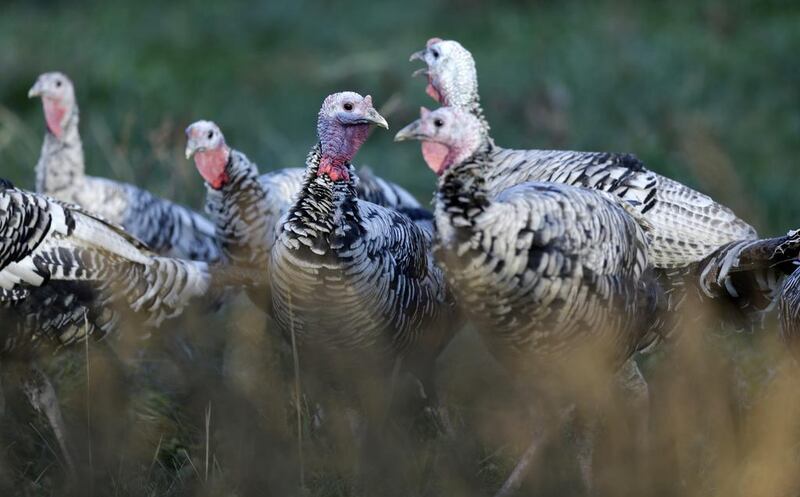If you’re American, or have American friends, you know that last week was Thanksgiving, a holiday traditionally celebrated by getting together with family and friends to eat until you hit the (in)famous “turkey coma”.
That emphasis on food comes from the first Thanksgiving, when a native population welcomed a group of refugees utterly foreign to their shores. In an ugly irony, some officials in the US government seem unwilling to extend a similar compassion to this century’s refugees – even as those officials sit down to their own Thanksgiving feasts.
Thanksgiving is purely secular: it celebrates a moment of unity rather than any divine event. For many Americans, it’s the best holiday, probably because of the food: we’re talking multiple pies, mounds of vegetables (usually lashed with cream and butter), and the occasional smidgen of turkey-based protein.
Truth be told, I’m not a fan of turkey, but I do love gathering with my family, which is why, for me, Thanksgiving is a particularly hard time to be far from home.
No family is perfect, of course, and every gathering comes with its irritations – all those questions about who is or isn’t getting married, having a baby, leaving for college or making enough money, and let’s not even mention politics. But it’s like the poet Robert Frost said: “Home is the place that when you go there they have to take you in.” Or at least, that’s what we hope for: home as an unconditional refuge.
For most of us living as expatriates in Abu Dhabi, that unconditional refuge can be expensively far away, and although Skype offers a semblance of a connection, hugging an iPad isn’t quite the same as hugging Grandma.
Sometimes I wonder about less technologically advanced eras, when letters took weeks or even months to travel back and forth. Without the possibility of staying linked to home, were people more open to new experiences?
When we leave home and begin the process of settling in somewhere else, whether just a few towns away for university or halfway around the world for a new job, logistics take priority – bank accounts and grocery stores and the all-important Wi-Fi access (for Skyping home) – but then comes the harder, and more important, piece: finding a new tribe, that group of people who will become “home”. I’ve invoked Simone Weil’s adage before, but it bears repeating: “To be rooted is perhaps the most important and least recognised need of the human soul.”
In addition to Thanksgiving last week, for me there was also that little blip on the radar known as Formula One, which before living here I’d never even known was a sport, really, much less a sport with rabidly devoted fans.
This year's Grand Prix was indeed a gathering of the tribe, eagerly debating the nuances of this car or that, those drivers or these. It’s hard for me to imagine a racetrack as a source of “rootedness”, but I have an English friend who is similarly mystified by the American tendency to pile marshmallows on sweet potatoes and call it a side dish rather than a dessert.
I do not define my Abu Dhabi tribe solely by its willingness to eat sweet-potato casserole, but I derive sustenance from our Thanksgiving gatherings in ways that have nothing to do with food. The “tribe” is not all American, but we gather nonetheless, and celebrate our gratitude for having a community that creates a sense of rootedness. And just like my childhood Thanksgivings, when I would race around with my 17 cousins, so too at this Thanksgiving a slew of children, revved up on apple pie and whipped cream, ricocheted through my apartment with a noise that I’m sure rivalled anything at F1. There was familiarity in the noise, and comfort in the chaos.
In the aftermath of Thanksgiving and National Day, take a moment to celebrate your tribe, regardless of whether you gather around race cars, sweet potatoes, the Emirates or the life-saving offerings of Wampanoag Indians 400 years ago. Celebrate – and then ask someone you don’t know to join the group.
Deborah Lindsay Williams is programme head of literature and creative writing at NYU Abu Dhabi





